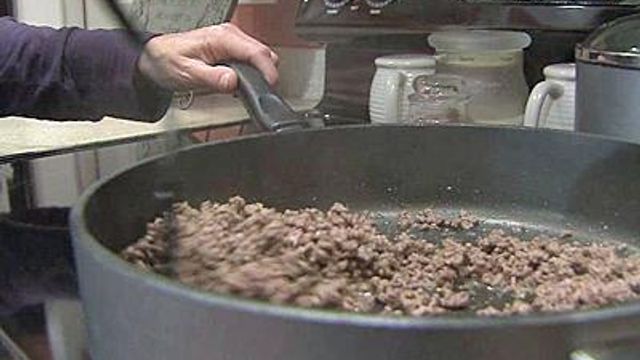Does your kitchen meet health codes?
Each week, 5 on Your Side reports some of the area's lowest- and highest-scoring restaurant sanitation grades. But how would a home kitchen fare with local health inspectors?
Posted — UpdatedBut how would a home kitchen fare with local health inspectors?
Wake County health inspector Thomas Jumalon recently visited the Wake Forest home of Kris Merrell to find out.
Merrell considers herself to be pretty aware of proper food safety and keeps her kitchen clean.
Her overall grade – 94, an A.
Jumalon checked Merrell’s pantry, to utensil drawers and cutting boards and found them all to be in “very good shape.”
Where he found Merrell to be in violation of Wake County health codes was while she cooked dinner. She prepared sloppy Joes, green beans and macaroni and cheese.
While preparing the food, she turned off the sink faucet with her hand, instead of a paper towel. She put ground beef and green beans on the same counter.
“We don’t want to put raw stuff we have to cook with raw ready-to-eat,” Jumalon said.
When it comes to leftovers, Jumalon said it’s best to cool food as quickly as possible. During the so-called cooling phase, bacteria can get in food and reproduce quickly.
Jumalon said leftovers should be placed in a shallow, loosely covered container so that heat can escape. For a really quick cool, he said, put the pan into the freezer.
“In 15 minutes, we went from 126 degrees down to somewhere between 69 and 70 degrees,” he said. “Now, we've got 4 hours to get it down to 45 degrees.”
That can be done in a sealed container in the refrigerator.
He suggested Merrell drop the fridge’s temperature to 40 degrees. The colder it is, the longer food lasts, he said.
Merrell’s freezer also needed re-arranging.
“We have raw meats, we have ice cream – not a good thing because we want to keep raw stuff on the bottom, and ready-to-eat stuff on top,” he said.
Merrell said the inspection showed her what she could do better.
“Definitely the cooling,” she said. “That was never something I thought could do any harm to the food. … and not leaving the meat next to the vegetables on the counter.”
• Credits
Copyright 2024 by Capitol Broadcasting Company. All rights reserved. This material may not be published, broadcast, rewritten or redistributed.






